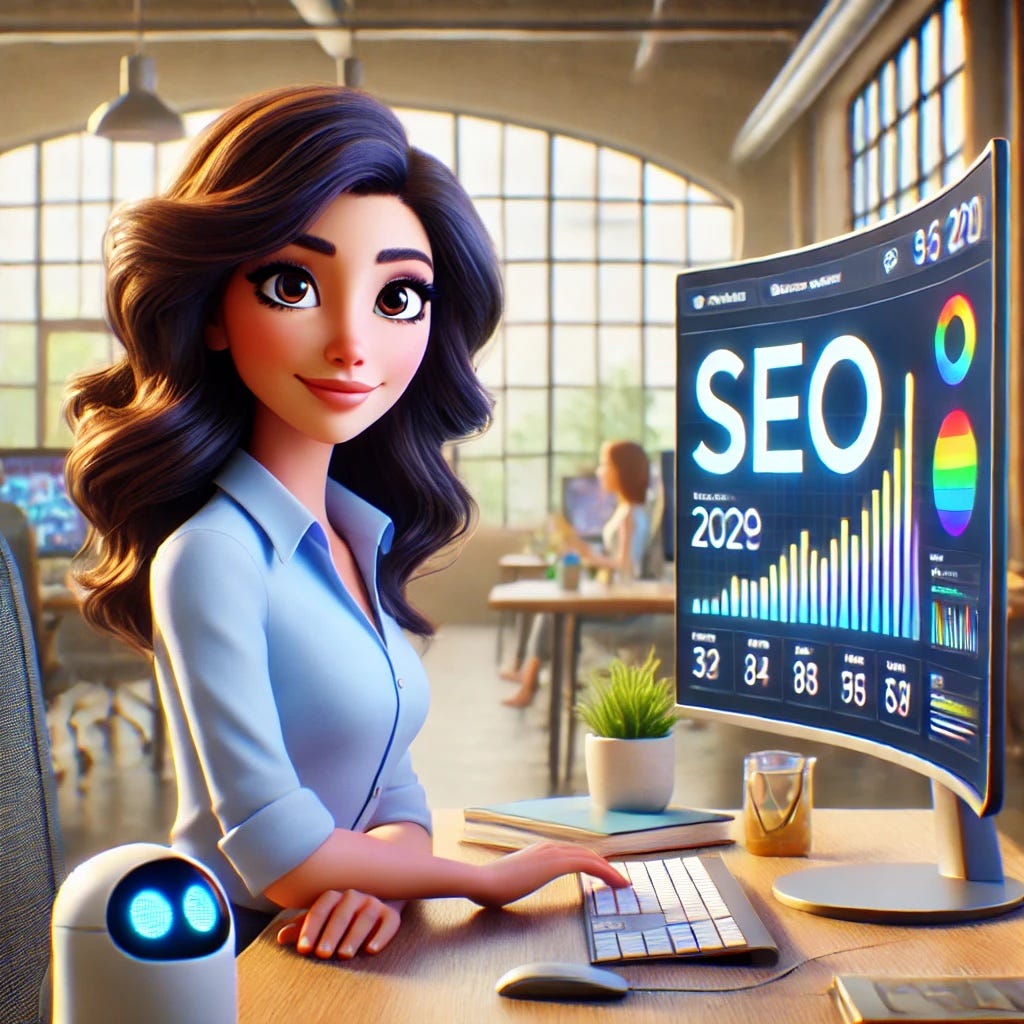AI won’t replace SEO Managers - but SEO managers who use AI will replace those who don’t
I'll show you how to use AI + SEO
AI isn’t the future of SEO—it’s already reshaping it.
Right now, AI is generating keyword clusters, optimizing on-page content, analyzing SERP intent, writing meta descriptions, and helping brands scale faster than ever.
Some SEO pros see this as a game-changer. Others see it as a threat.
The truth? It’s both.
Whether AI becomes your most powerful asset or the thing that leaves you behind depends on how you adapt. The SEO managers who leverage AI strategically will become indispensable. Those who ignore it? They risk becoming outdated.
So what does this mean for rankings, relevancy, and the human side of search? Let’s break it down.
AI and SEO strategy: Friend or foe?
One of the biggest concerns among SEO managers right now is that AI will automate them out of a job.
AI can already:
Identify high-volume, low-competition keywords
Generate optimized blog posts
Suggest technical SEO fixes
Analyze competitors’ backlink strategies
Track ranking fluctuations across hundreds of URLs
So where does that leave the human expert?
Here’s the truth: AI can process, organize, and optimize—but it can’t strategize, lead, or innovate. That’s still your job.
✅ How to stay valuable in the AI-powered SEO era:
Use AI for speed, not shortcuts. Let it handle the heavy lifting (keyword research, meta tags, content drafts), but make the final calls.
Layer human strategy on top. AI can show you what’s trending, but you interpret what it means for your brand, your voice, and your goals.
Elevate your insights. Instead of spending 80% of your time gathering data, use AI so you can spend 80% analyzing it—and making smarter moves.
How AI is changing SEO workflows
Whether you’re in-house, agency-side, or freelancing, your workflow is changing—fast. Here's how AI is reshaping the SEO landscape:
Speed & scale
AI can generate keyword lists, cluster them by topic, and draft optimized blog posts—all in under an hour. What once took a team of writers and strategists now takes one well-trained AI assistant.
Smarter content planning
Tools like ChatGPT, Surfer, and Frase can scan top-ranking content, extract structure and intent, and guide your editorial calendar with precision.
Real-time optimization
AI tools can now recommend improvements to existing content—as it’s being written. From title tags to FAQs, you get instant, data-backed suggestions that boost performance before you hit publish.
✅ How to integrate AI into your SEO strategy (without losing your edge):
Use AI to batch-create outlines, identify gaps, and brainstorm content angles. But still have an SEO lead vet everything for quality and accuracy.
Train AI on your brand tone and SEO goals—the more context you give, the better the output.
Leverage AI for historical analysis and forecasting, but apply your experience to guide strategy and decision-making.
The risks of AI-generated SEO content (and how to avoid them)
AI is powerful—but not infallible. If you rely on it too heavily, your content can end up sounding bland, inaccurate, or even spammy.
🚩 Inaccuracy + Misinformation:
AI may confidently generate stats, facts, or “best practices” that are outdated—or just plain wrong. You still need to fact-check everything, especially in YMYL (Your Money, Your Life) categories.
🚩 Over-Optimization:
AI tools trained to rank often go overboard with keywords and structure, making content that’s technically correct but unreadable for humans.
🚩 Lack of Differentiation:
If every SEO manager starts using the same AI tools the same way, we’ll see a wave of nearly identical content—fast. The winners will be those who layer on personality, originality, and depth.
✅ How to protect your SEO strategy in the age of AI:
Build brand-first content. Use AI to help with structure and flow, but make sure your tone, POV, and expertise shine through.
Diversify your traffic strategy. AI content is easy to replicate—build deeper assets (like interactive tools, videos, and communities) that can’t be copied by a bot.
Stay on top of E-E-A-T. Google is doubling down on experience, expertise, authority, and trust. AI can help you scale, but it can’t fake real expertise.
AI won’t replace SEO managers
But it will change the definition of what a great SEO manager does.
The ones who thrive in this new era will: ✅ Master AI tools without becoming dependent on them
✅ Turn AI-generated insights into strategy and growth
✅ Protect and enhance originality, trust, and brand authority
This is your chance to evolve—from executor to strategist. From tactician to trusted advisor.
The future of SEO isn’t AI vs. humans. It’s AI + humans.
The ones who understand that? They’ll lead the next generation of growth.






Raquel, there must be a mind-meld happening. My issue, which was published today and mentioned this post, focuses on much the same thing. I love it that we're both raising the issue and also providing answers to help. You knocked it out of the park. Let's keep the guidance going to help those in our industry make this all-important transition.